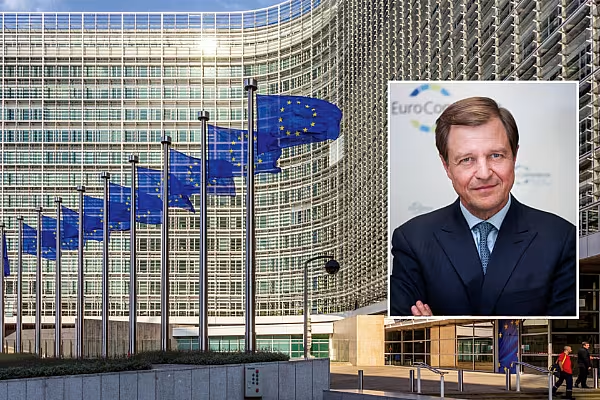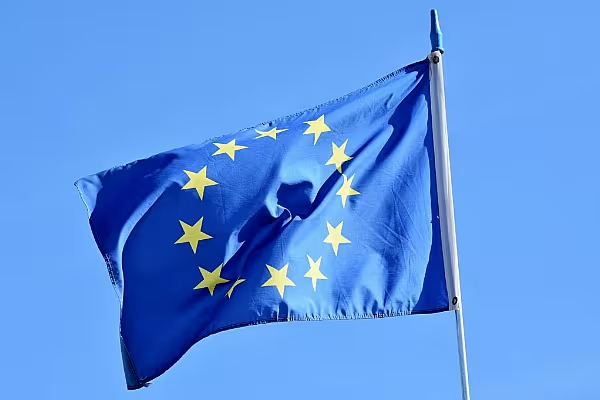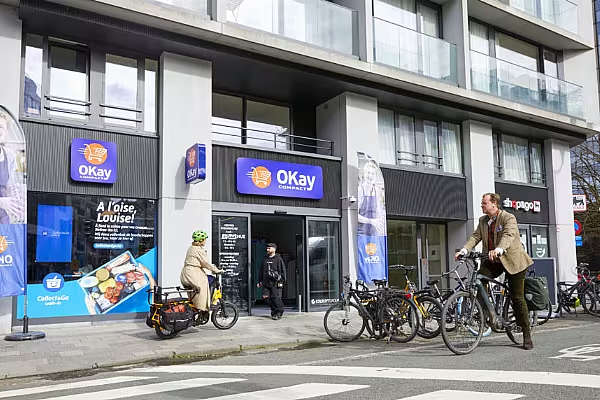With a new European Commission president now installed, attention can turn to making Europe’s business sector fit for a new decade. ESM spoke to Christian Verschueren, director general of EuroCommerce, about what Europe’s retailers and wholesalers can expect. This article first appeared in ESM Issue 1 2020.
Last year, while she was still in the running for the role of European Commission president, Ursula von der Leyen published her Agenda for Europe, calling for a European Green Deal to develop a climate-neutral continent by 2050, as well as the development of an ‘economy that works for people’ and a Europe fit for the digital age.
Since assuming the position in December, attention has now turned to how successfully von der Leyen will realise her vision between now and the end of her term, in 2024.
One industry that will be paying particular attention to efforts in Brussels will be EuroCommerce, which represents the European retail and wholesale sector.
As we look into a new decade, we catch up with EuroCommerce director general Christian Verschueren to discuss the challenges and opportunities facing the sector.
ESM: What are your biggest expectations for the coming year with regard to the retail and wholesale sector?
Christian Verschueren: Commission President von der Leyen has set out an ambitious agenda for the next five years, and we have already seen her put forward some more detail in the area of the Green Deal. We can expect more in the coming weeks, when the Commission presents its new programme of work.
Our own policy ‘asks’, which we wrote in our manifesto last year, are closely aligned to those of the Commission: 1) building a successful European data economy; 2) safeguarding open markets, both with the EU and globally; 3) securing fair competition and a level playing field, as well as the freedom to do business across Europe; and, finally, 4) supporting our sector in its commitment to people and sustainable living.
We are also working with our wholesale members to promote a better understanding of their central role in supply chains and industrial ecosystems.
Apart from the Green Deal, we will be looking closely at the Commission’s approach to issues surrounding technology – ethical aspects of artificial intelligence, the sharing and protection of data, how to deal with platforms, and other aspects of the digital economy.
The balance we need to strike is between effectively addressing legitimate concerns on issues such as privacy and individuals’ rights with not blocking Europe’s ability to develop a globally competitive digital economy.
We will be pressing the Commission to live up to their encouraging statements on promoting the interests of SMEs (which make up 99% of our sector), and also a new commitment to the single market, which is the most effective way of boosting Europe’s economy and growth.
We are particularly keen to see the Commission act on territorial supply constraints – unjustified restrictions imposed by manufacturers to prevent retailers from legitimately choosing where to source and distribute products within their own networks across Europe. These restrictions are used to enforce major variations in price with no objective justification – all to the detriment of consumers.
We will be monitoring how national governments implement the Unfair Trading Practices Directive, so that there is a balanced implementation nationally that respects the spirit of the directive: to support farmers and small food processors. In this context, we are also looking at retailer alliances and their important role in balancing the market power of manufacturers to impose unjustified price rises and fragment the single market for sourcing.
As the Commission’s Chief Competition Economist [Dr Pierre Régibeau] said last year, regulatory intervention in relations between large manufacturers and retailers may shift the balance in favour of large multinational brand manufacturers, who already make significant net profits of 15-30%, where our sector struggles to earn 1-3%.
Protecting these large players can do nothing to help farmers and will directly hit consumers with higher prices.
We are also working to ensure that future regulation is well thought out, based on evidence of need, takes a balanced account of all stakeholders’ views, and puts the consumer at the centre of policymaking. This includes a raft of expected social and employment legislation, which – we want to be sure – makes it easier to employ people, rather than the reverse.
The coming year is expected – hopefully – to see an easing of trade tensions, which, in turn, should reduce business uncertainty and stimulate growth. What effect will this likely have on retail?
Before the end of the year, I would have said that there were, indeed, signs that some of the major disruption of the international trading system – through the unilateral imposition of tariffs, particularly by the US – might be mitigated. The replacement of NAFTA, involving the US, Canada and Mexico – the USMCA agreement – a US-Japan agreement, and signs that the US had reached a preliminary deal with China, were all positive signs.
The EU has also made major progress on bilateral deals with Mercosur and Vietnam and implementation of the Japan and Canada trade agreements, but the WTO Appellate Body has now ceased to function due to US blockage of appointing new members, putting the multilateral trade system at risk. Major new tensions in the Middle East, and consequent rises in the oil price and further pressure on the global economy, may pull us back into slower growth and harm consumer confidence.
Neither will be good news for our sector, which is already seeing margins under further pressure and major disruption through the digital transformation and the significant shifts in the way that consumers live and buy.
We also face new threats of $7 billion [€6.31 billion] in new tariffs on EU exports to the US, following a WTO judgment on subsidies to Airbus, and of a major EU-US dispute resulting from the US threat to impose tariffs on French exports in response to a French digital tax.
The European Supply Chain Initiative (SCI) wound down at the end of 2019. Has enough work been done since its inception to ensure long-lasting changes to commercial dealings?
The SCI has, over six years, brought together a critical mass of Europe’s retailers and food manufacturers, with some 1,200 companies registering under the initiative.
The aim of the SCI was to promote fairness in commercial relations across the food supply chain. We very much regretted the decision of food manufacturers to withdraw from the SCI at the end of last year, making the initiative impossible to continue.
I hope that they will come to see that everyone’s interests – from basic producers, processors and distributors, to, above all consumers – will be best served by recognising that dialogue and cooperation will achieve a lot more in the long term than confrontation.
The SCI’s Principles of Good Practice were widely endorsed by all parts of the food supply chain, including farmers, and we saw the SCI provide an important route for dialogue and resolving disputes. Experience at a national level shows, clearly, that such an approach is beneficial to good relations between suppliers and retailers, many of whom have amended their contracts to reflect the SCI principles.
In this spirit, the SCI leaves a legacy of initiatives, mechanisms and tools, which have made a positive impact in the food supply chain and which will continue to be useful for all stakeholders in the future, at a national level.
Retail taxes continue to be on the agenda in many member states, with Lithuania recently proposing a new retail tax. Do you see efforts being stepped up in the coming year to clamp down on such taxes and maintain the principles of the single market?
Over the past ten years, we have seen several retail-specific taxes being introduced by governments in, for example, Hungary, Poland, Slovakia, and, most recently, Lithuania. All these taxes seem to look to tax international retailers in those markets, on the assumption that these companies operate on massive margins. Retail businesses have a high turnover, but with very low average net margins of 1% to 3%.
At the same time, retailers are major local employers, and they support local communities and businesses. They source locally, on average, 70% of products they sell. Turnover-based taxes at even low levels can, therefore, eliminate any profit earned by retailers. This will either lead to retailers having to absorb the cost, renegotiate conditions with suppliers, or increase consumer prices.
It is really unclear what member states want to achieve with these taxes. The European Commission has concluded that most of the taxes introduced have constituted unlawful state aid, and the Court of Justice of the European Union concluded that the Hungarian retail tax was indirectly discriminatory.
Often, member states that propose retail-specific taxes have also introduced other types of restrictive laws on retail, e.g. regulation of B2B relationships to the benefit of suppliers, favouring local products vis-à-vis products from other countries, making larger retailers subject to competition law restrictions, regardless of their real market power, and restricting the establishment, reconstruction or expansion of stores.
This is undermining the single market, and it is creating a hostile environment for new competitors, which will lead to less competition. Higher consumer prices and less choice will be the end result.
We are pleased that the Lithuanian government has – at least for the time being – shelved its plans, but a number of other member states are still considering such taxes.
The European Green Deal is likely to ‘mainstream’ the sustainability agenda, in turn, affecting retailer supply chains. Are retailers ready for the likely changes that will be enforced?
The retail and wholesale sector can be proud of its record on sustainability, whether it is in reducing its carbon footprint, use of alternative energy, reducing food waste, or reducing plastics and unnecessary packaging. The Green Deal presents a tremendous opportunity for Europe to take on global leadership in creating a sustainable and more competitive economy.
Our sector has been proactive in introducing natural refrigerants and implementing renewable energy sources in its stores and distribution centres, as well as reducing CO2 emissions in its transport fleet.
It also works to address deforestation and create better traceability, and a wider range of alternative products, such as organic food and alternatives to meat. That said, we will no doubt need to work even harder in these areas, and also embrace vigorously the disruptive impact on traditional business models of new spending patterns in the circular economy.
In turn, we will be pressing the Commission on the proposals to follow up the Green Deal communication, which came out before Christmas, to reflect the diversity of choices made by consumers every day, and of the different solutions which retailers must adopt to meet these. They must also ensure that new and existing EU and national regulatory requirements do not contradict each other.
It will be equally important that everyone in the supply chain is consulted and involved in developing these measures if the Green Deal is to succeed. One aspect of particular interest will be the ‘Farm to Fork’ strategy, which is, at present, focused on sustainable farming.
We will be seeking to ensure that this aspect of the Green Deal does not harm consumers and the ability of farmers to provide sustainable and reliable supplies of quality food for us all.
EuroCommerce and the European Retail Round Table are teaming up. What advantages will this bring?
The combination of the two organisations, which had a significant overlap in membership and scope of work, will create a stronger, more streamlined and united retail and wholesale organisation to safeguard and promote our sector at a time when it faces unique economic and regulatory challenges.
This will give the retail sector a more prominent and united voice in Europe, help us highlight the valuable contribution that our sector makes to society, and address strategic issues around fair competition, digitalisation and sustainability.
For more information, visit www.eurocommerce.eu.
© 2020 European Supermarket Magazine – your source for the latest retail news. Article by Stephen Wynne-Jones. Click subscribe to sign up to ESM: The European Supermarket Magazine.














